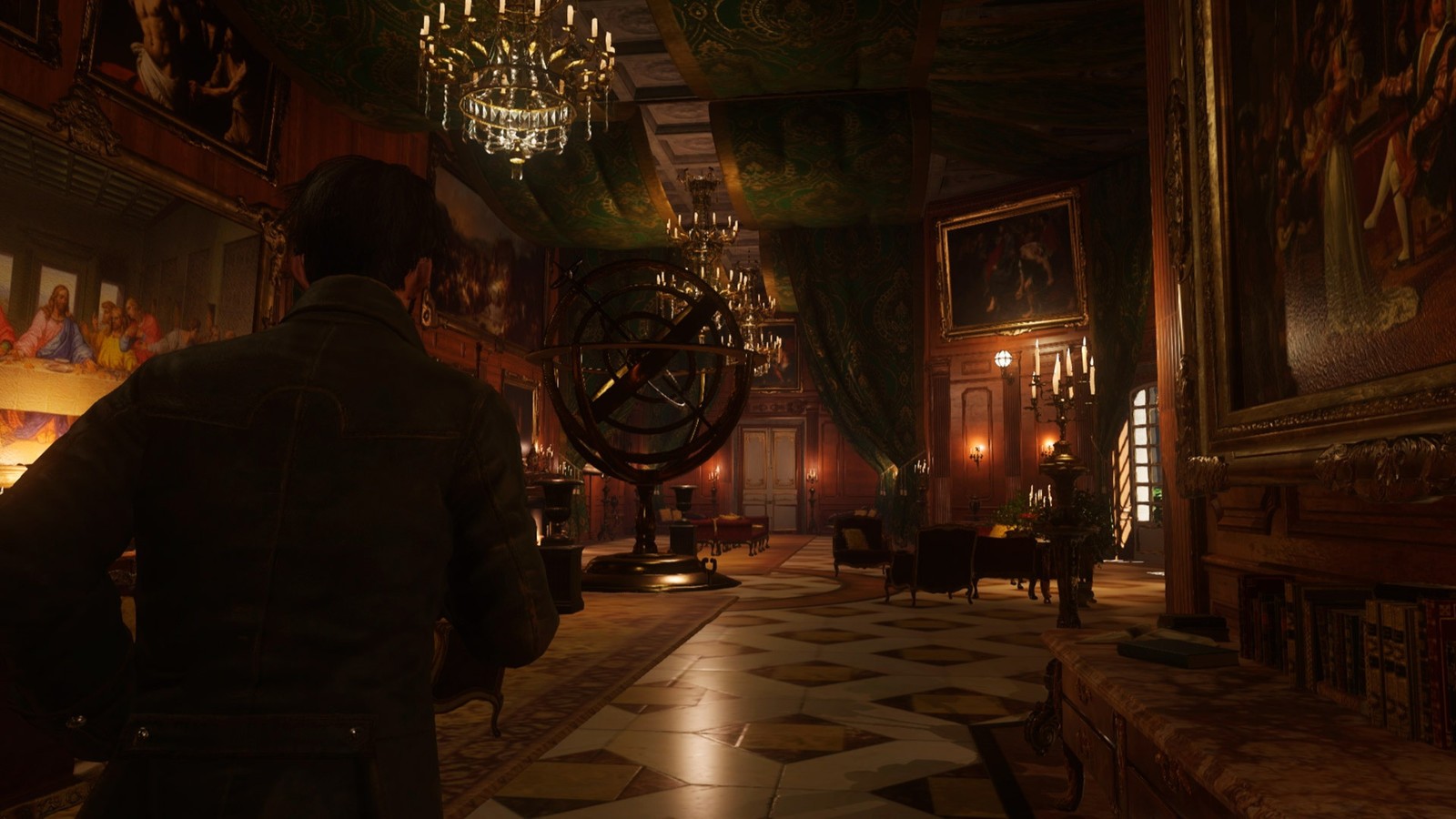The Council Episode 1 Review - Many secrets and reasons to explore
A young man, Louis de Richet, is bound in a chair in Paris. It is the year 1792 and his mother shares his approximate position and sits next to him. They manage to keep themselves safe while the villain that holds them is riddled with how to poison them. This is how the first scene of a wonderfully imaginative historical murder mystery on the island of the mysterious Lord Mortimer kicked off. In a sense, it is a typical murder mystery house with secret rooms, impressive halls and lots of pomp and circumstance.
It adds historical characters such as George Washington and Napoleon Bonaparte. The Council is a neat mix of horror, the "unknown" and more practical detective work. A few months after the start in Paris, Louis receives a message from Lord Mortimer that his mother is missing on his island and he invites the young man to help her look for her. As expected, not everything goes wrong and you have to get to know all the other guests on the island to unravel the mystery of its owner, solve other problems that arise during this adventure, and eventually, hopefully, be reunited with your mother.
You can view The Council in two ways. As a narrative adventure with RPG elements that allow you to develop your character while using objects to explore the story. On the other hand you can see it as an RPG without fighting that is completely focused on the story. Whichever you prefer: there is something very attractive about the design and the title feels both refreshing and innovative.

During the first episode, you will become acquainted with the surprisingly profound 'skill tree' that offers three branches: Diplomat, Occultist and Detective. They offer a total of 15 skills that can be improved. At the beginning, you choose a branch that allows you to unlock skills faster, but you can combine them as you wish. You quickly encounter dialogue options or missed opportunities because you have not yet unlocked certain skills. Moreover, you can not make unlimited use of these skills and therefore must make sensible choices when using them and when you use them during dialogues. In addition, you have to make sure that you have enough 'consumables' to replenish your action points. During the first episode, this system is rather generous,
There is more to it as your positive and negative characteristics are unlocked by your actions (or inactivity). The character traits add points to skills, where the negative traits are a burden. You can get rid of negative properties with a fairly rare consumable. There are also manuscripts to collect and at the end of each part of an episode you can select one that gives you a 'boost' of a specific skill. All in all it is a fairly extensive system.
In addition to the normal dialogues, there is something called "Confrontations", where you have to go through the immunities and vulnerabilities of the character you are dealing with. It is a bit like the "Talk Back" mechanism from Life is Strange: Before the Storm, but much more interesting, because you can fail a confrontation at any chance. You may have learned something during your adventure, making the right choices or perhaps you have the right ability to exploit someone's weaknesses.
It's a great way to ensure that the player does not just click through the dialogue options, because you need to think about this. Do you use manuscripts to sharpen your strengths or do you correct your weak points? During a dinner, our lack of etiquette skills meant that we had to leave many opportunities and so the necessary information failed. At a later date we meet Napoleon and here our knowledge of history worked in our favor.
Not everything is cake and egg, as we were faced with a few problems. First there are parts where visually the necessary finishing could have been used and the lack of proper lip sync can be very distracting. Worse is the way different outcomes of situations were addressed. Towards the end of one of the five parts of this first episode, we met one of the guests, a Bishop, near our room. He had asked us to intervene in a situation where another guest hit a mysterious woman covered with scars and tattoos. We opted for the cowardly approach, which made the Bishop extremely dissatisfied with us. However, he wanted to ask us for something to do and this completely changed his attitude. He wanted to return the unopened letter he had given us to give to our mother (he wanted to add something to the letter). Unfortunately, we had this opened and the Bishop was completely changed by this. The next day, however, he pretended that nothing had happened. These events take place on the basis of your actions and differ per player, but it felt that there was no real connection in this, at least not in the short term.
Conclusion
All in all, we were impressed by the first episode of The Council and although it was mostly made for the rest, it contained more than enough depth compared to a standard episodic adventure. We can not wait to continue our adventure as Louis and the good news is that all five episodes should appear before the end of the year.
The Plus and Minus Points
✔ Interesting story and design
✔ Many secrets and reasons to explore
✔ RPG elements elevate the experience.
✖ Visually not great on all levels
✖ Lack of lip synchronization can distract
✖ One or two cases where our actions did not seem to have any consequences
Thanks for reading, I hope you liked it!

Steem's Popularity Is Incredible!
Share the joy by inviting others!
My Latest Posts:
- Sea of Thieves Review - Cool open world
- A Way Out Review - Unique co-op experience
- God of War Preview - Kratos is back
- Rad Rodgers Review - Nice dark humor
- Tesla vs. Lovecraft Review - Many weapons and perks


Congratulations @braini! You have completed some achievement on Steemit and have been rewarded with new badge(s) :
Click on any badge to view your own Board of Honor on SteemitBoard.
For more information about SteemitBoard, click here
If you no longer want to receive notifications, reply to this comment with the word
STOPDo not miss the last announcement from @steemitboard!
Congratulations @braini! You received a personal award!
You can view your badges on your Steem Board and compare to others on the Steem Ranking